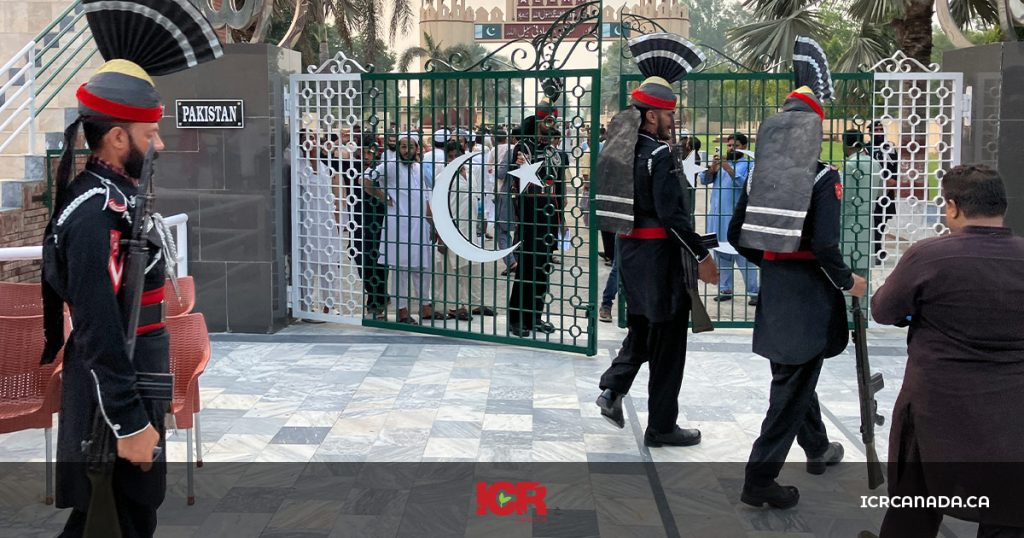Judge in Pakistan Hands Death Sentence to Christian Killer

On March 27, 2025, a judge in Pakistan handed down the country’s maximum punishment for murder to Muhammad Zubair, a Muslim man convicted of killing 20-year-old Christian student Farhan Ul Qamar. The ruling, delivered by Additional Sessions Judge Saima Riyasat in Pasrur, Sialkot District, included a death sentence and a fine of 500,000 Pakistani Rupees ($1,785 USD).
The Verdict: A Landmark Decision
Christian attorney Lazar Allah Rakha, who represented the victim’s family, described Zubair as a repeat offender who had long evaded justice due to his family’s political influence. The court’s decision marks a rare instance of accountability for crimes committed against Christians in Pakistan, where religious minorities frequently face violence and discrimination with little recourse.
“The convict is a hardened criminal and was already involved in several cases of a heinous nature,” Rakha stated. “His family’s influence enabled him to escape punishment multiple times, which only emboldened him to target Christians without fear of consequences.”
This ruling stands as a crucial step in holding perpetrators accountable and setting a precedent that crimes against marginalized communities will not go unpunished.
A Family’s Pursuit of Justice Amidst Intimidation
Farhan Ul Qamar’s family demonstrated extraordinary resilience in their pursuit of justice, despite ongoing threats and pressure from Zubair’s relatives. Noor Ul Qamar, Farhan’s father, remained steadfast in his faith, trusting in God for justice while enduring harassment from the convict’s family, who sought to pressure them into a settlement that would have allowed Zubair to escape justice once more.
The slain young man had been enrolled in a four-year medical technician program and had aspired to serve his community in the healthcare field. His brutal murder on November 9, 2023, was not only a devastating loss for his family but also a stark reminder of the challenges faced by Christians in Pakistan.
Ul Qamar and his wife broke into tears as the judge announced the verdict. “I cannot express the agony and pain my wife and I and our three children have suffered since the time our beloved son’s life was ruthlessly taken in front of our eyes,” he said. “From the onset of the trial, we had set our eyes on our Lord Jesus Christ and remained steadfast in our faith that He would deliver justice.”
Despite the court ruling, Zubair showed no remorse. As he was led out of the courtroom, he hurled threats, declaring that Christians would never be allowed to live in peace. The authorities have since stationed four police officers outside the Qamar family’s home to provide security against potential retaliation from Zubair’s supporters.
The Larger Issue: Christian Persecution in Pakistan
This case is not an isolated incident but part of a broader pattern of persecution against Christians in Pakistan. The country ranked eighth on Open Doors’ 2025 World Watch List of the most difficult places to be a Christian, highlighting the systemic discrimination and violence faced by the community.
Religious intolerance often manifests in the form of mob violence, targeted attacks, and false blasphemy accusations, which carry severe consequences. The 2023 Jaranwala attacks, where churches and Christian homes were torched by enraged mobs, stand as a testament to the Pakistani government’s failure to protect its religious minorities. Many suspects in those attacks were released on bail, signaling a lack of commitment to justice for Christian victims.
Tehmina Arora, Director of Advocacy in Asia for Alliance Defending Freedom (ADF) International, pointed to systemic failures in Pakistan’s legal framework. “Mobs and individuals are emboldened because, over the years, the Pakistani government has failed to ensure swift prosecution and justice for Christians who have been attacked in their homes and churches,” she said.
Nonetheless, Farhan Ul Qamar’s case demonstrates that when law enforcement agencies act with professionalism and integrity, justice can prevail. The successful prosecution of Zubair was aided by the diligent efforts of the police and the support of legal advocacy groups, including ADF International, which helped cover the legal costs of the trial.
The Path Forward: Ensuring Protection for Religious Minorities
While the verdict in this case is a victory for justice, it also underscores the ongoing vulnerabilities faced by Christians in Pakistan. The government must take decisive steps to ensure the protection of religious minorities, strengthen legal mechanisms against discrimination, and hold perpetrators accountable for crimes against Christians and other marginalized communities.
Christians in Pakistan, like the Qamar family, continue to live under the constant threat of violence, often with little to no legal recourse. The Pakistani judiciary must build on this precedent by ensuring that future cases of religiously motivated violence are met with swift and fair trials.
Furthermore, the government must address deep-rooted societal biases through education and policy reforms. Legal advocacy groups and international organizations have called for Pakistan to uphold its obligations under international human rights laws to protect religious minorities and provide them with equal treatment under the law.
As for the Qamar family, their resolve serves as a powerful message to other Christian families facing similar challenges. “Our struggle was not only to get justice for Farhan,” Ul Qamar said, “but also to ensure that no other Christian family in our area would suffer at the hands of such religiously prejudiced criminals.”
While Zubair has the right to appeal his sentence—a process that may take years—his conviction marks a significant milestone in the fight for justice for persecuted Christians in Pakistan. The international community must remain vigilant, advocating for systemic changes that will provide lasting protection for religious minorities in the country.
